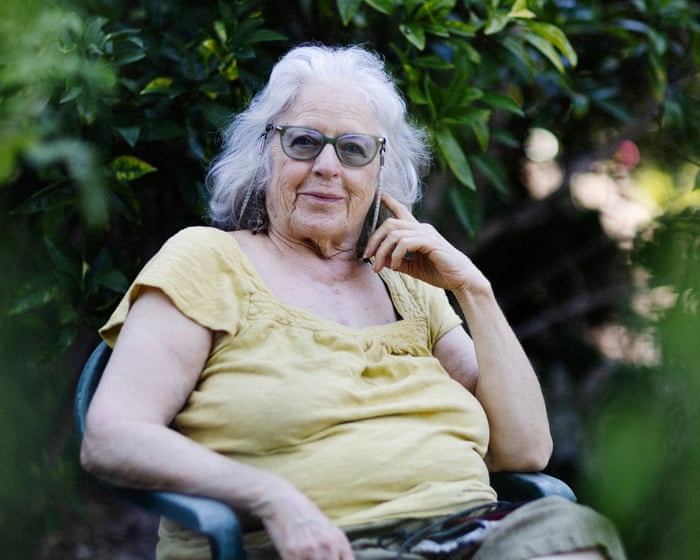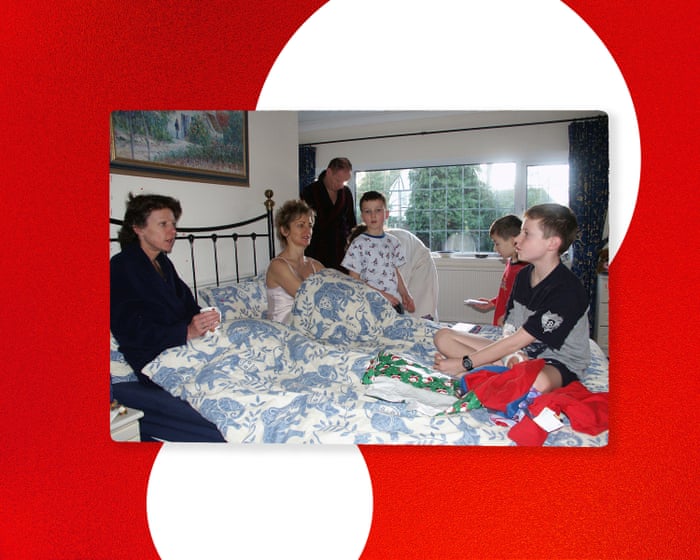At 39, Cathleen Caffrey spotted a brochure at her Alcoholics Anonymous meeting. It featured people who had become sober in their 70s, sharing how wonderful their lives had become. “That gave me a hope that I held onto for a long time,” she recalls. Now 80 and sober for decades, Caffrey finally feels at peace with herself.
Throughout her life, Caffrey believed she was “a bad person, not lovable or likable.” Her parents separated when she was 10, and “at that point, a voice inside me said, ‘Nothing’s ever going to work.'”
Growing up in California, she was a bright student but “very shy… I would read during recess or play hopscotch by myself.”
After college, she attempted graduate school but disliked it. She held various jobs—filing computer keypunch cards, working as an administrative assistant, data processor, technical writer and editor, and checking hospital databases for duplicates—but never built a career. “I just didn’t know how to schmooze or work in a team. I was stuck thinking, ‘There’s something wrong with me,’ and I couldn’t break free from that.”
Her relationships followed a similar pattern. “I was never able to find a relationship that worked for me.” They either ended quickly or became obsessive—”another kind of addiction… And it was very painful watching them fall apart repeatedly,” she says. “For many years, I thought I looked like the Elephant Man.”
Caffrey didn’t start drinking until she was 21, and it slowly became a problem. She attended her first AA meeting in her 30s and has been sober for 42 years, but she struggled with depression for decades.
After retiring in her mid-50s due to repetitive strain injuries, she says, “I must have spent 10 to 12 hours a day lying on my back watching TV. I kept thinking, ‘I can’t do anything.'”
Some of her extended family had been diagnosed with autism and ADHD. During the Covid pandemic, she had “a chance to think” and began exploring online the feelings that had haunted her since childhood.
“One day, the word ‘autism’ caught my eye, and I discovered a world of videos where people described their struggles as young kids—never feeling they belonged, never fitting in, having trouble making friends. I thought, ‘Oh my God, this is me. This is me exactly.'”
Though she can’t afford a formal diagnosis, Caffrey now identifies as autistic. Understanding herself has been life-changing. “It was an incredible relief to realize that what I’d always thought was me being a bad person was just me not understanding how I relate to others.”
Caffrey lives in a mobile home park for seniors in Santa Rosa, California, which has a vibrant community. She attends philosophy discussion groups and occasional potluck dinners, and her rescue dog, Petunia, helps with social interactions by wagging her tail at people. “I’m more or less quietly happy a lot of the time now,” Caffrey says.
When she turned 80 in July, her brother and his partner wanted to throw her a party. “I thought, ‘What the hell?'”
She invited people from the philosophy group and neighbors she greets while walking Petunia. “And 60 people came! In my whole life, I would have guessed the most who’d ever come to a party for me would be 10. I couldn’t believe it. It was the most amazing experience of my life,” she says. “They all seemed happy to see me.”
In her 80s, Caffrey has found contentment. “I’m no longer driven by wanting money.””I’m not seeking a particular relationship or recognition for my accomplishments. My only motivation is the desire to feel content with my life and to do my best for my dog, my family, and myself. This brings me a great sense of peace.”
Now, we’d like to hear from you: Have you found a new path in life after turning 60?
Frequently Asked Questions
Of course Here is a list of helpful and natural FAQs about receiving an autism diagnosis later in life
Frequently Asked Questions
Beginner General Questions
1 What does it mean to be autistic
At its core being autistic means your brain processes information senses the world and interacts socially in a different way than whats considered typical Its a different neurotype not a disease or a flaw
2 How could you go 60 years without knowing
Many autistic adults especially those born decades ago learned to mask or camouflage their traits to fit in Without widespread awareness these differences were often misunderstood as shyness quirkiness or anxiety
3 Is an autism diagnosis common for older adults
Yes its becoming much more common As understanding of autism broadens beyond just childhood many adults are recognizing themselves in the description and seeking formal diagnoses
4 Why did getting a diagnosis make you happier
For many it provides a profound sense of relief and selfunderstanding Its like finally getting the user manual to your own brain Lifelong struggles suddenly make sense and you can stop blaming yourself for them
Benefits Positive Aspects
5 What are the main benefits of a late diagnosis
The biggest benefit is selfcompassion You can reframe your life story understand your strengths and stop trying to force yourself to be normal It also helps you make sense of past challenges and build a life that truly works for you
6 Can you give an example of something that clicked into place
Things like always feeling exhausted after social events having intense deep interests in specific topics or being overly sensitive to lights or sounds can suddenly be understood as part of being autistic not personal failings
7 Does this change your identity
For many it adds a clarifying and empowering layer to their identity It doesnt erase who youve always been it helps you understand and embrace yourself more fully
Common Problems Challenges
8 What are some common challenges for newly diagnosed older adults
Some people experience a period of grief for the life they might have had with an earlier diagnosis There can also be frustration with family or friends who dont understand the diagnosis



